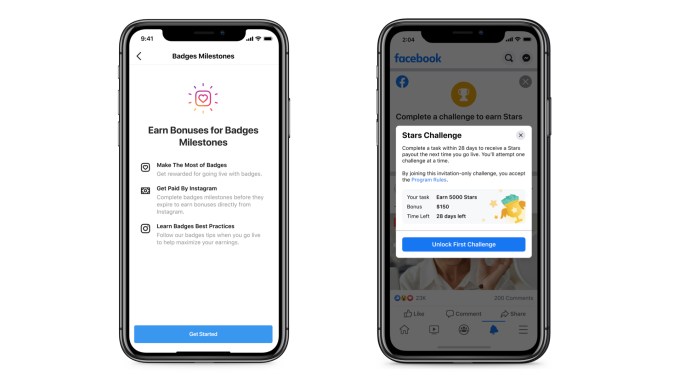As Apple hosts their annual Worldwide Developers Conference, Instagram and Facebook chose this moment to pilot their first-ever Creator Week. This three-day event is geared toward aspiring and emerging digital creators, complete with 9:45 AM virtual DJ sets and panels on “Algorithm Mythbusting” and raising “zillions for a nonprofit you care about.”
During the first day of the event, Mark Zuckerberg made an announcement introducing new ways for creators to make money. In the coming months, Instagram will start testing a native affiliate tool, which allows creators to recommend products available on checkout, share them with followers, and earn commissions for sales their posts drive. When creators make these posts, the text “eligible for commission” will appear beneath their username in the same way that sponsored content labels appear.
Available immediately, creators will be able to link their shops to their personal profiles, not just business ones. By the end of the year, eligible creators in the U.S. will be able to partner with one of Instagram’s merchandise partners (Bravado/UMG, Fanjoy, Represent, and Spring) to drop exclusive product launches on the app.
During live Instagram videos, viewers can tip creators by sending them a Badge, which costs between $0.99 and $4.99. Facebook Gaming has a similar feature called Stars, in which one Star is valued at $0.01. Starting this week, creators can earn bonuses for accomplishing certain challenges, like going live with another account. In a promotional image, for example, Facebook offers a bonus of $150 for creators who earn 5000 Stars, the equivalent of $50.
“To help more creators make a living on our platforms, we’re going to keep paid online events, fan subscriptions, badges, and our upcoming independent news products free for creators until 2023,” Zuckerberg wrote in a Facebook post. “And when we do introduce a revenue share, it will be less than the 30% that Apple and others take.”

Image Credits: Instagram
These updates mark the latest push by Instagram toward affiliate marketing and in-app shopping, like its redesigned Instagram Shop and Shopping in Reels, which debuted within the last year.
“Our goal is to be the best platform for creators like you to make a living. And if you have an idea that you want to share with the world, you should be able to create it and get it out there easily and simply — across Facebook and Instagram — and then earn money for your work,” Zuckerberg added during Creator Week.
Creators may be drawn to experiment with these affiliate and shop features, since for now, they won’t lose a cut of their profits to Instagram. But platforms like TikTok and YouTube offer monetization strategies that extend beyond ecommerce.
Last July, TikTok announced its $200 million TikTok Creator Fund, which allows popular posters to earn money from their videos. It’s unclear exactly how TikTok determines how much money to dole out, but it depends on the number of views, engaged views, and other factors. In August 2020, the YouTuber-turned-TikToker Hank Green estimated that he would bring home about $700 from 20,000,000 TikTok views in one month, averaging to about 3.5 cents per 1000 views.
Meanwhile, YouTube announced a $100 million fund last month for top creators on YouTube Shorts, its TikTok competitor. The platform pointed out that over the last three years, it has paid $30 billion to content creators. Snapchat has been paying $1 million per day to creators on their own TikTok competitor, Spotlight.
For users who don’t have millions of followers, these creator funds might not pay the rent. Still, it offers an income stream based on views, outside of e-commerce or viewer tips. For now, Instagram can’t say the same.





































